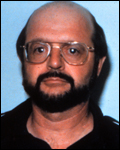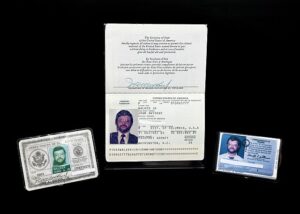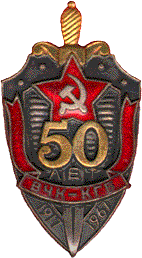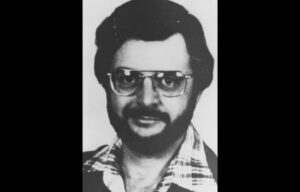The Cold War between the United States and the Soviet Union/Russia was one of the most complex and long-lasting chapters of tension between two countries in human history. From the time World War II ended, until the Soviet Union dissolved in 1991, both nations held worldwide nuclear devastation in their hands. While the two vaguely fought for the same side to defeat Germany and the other Axis powers in the Second World War, very soon after the struggle to lead the world politically became a source of contention. Russia and America started to obsess over learning each other’s secrets, they started wars against each other secretly, with other neighboring countries, and they even infiltrated some of the most clandestine intelligence organizations known to man.
John Anthony Walker was a United States naval officer, enlisting in 1955, and serving in what most thought was a faithful capacity until 1985, when it was revealed that he was part of a spy ring for the Soviet Union for close to twenty years. The level of sensitive information he gave away to what the world considered American’s enemy was incredibly detailed and wide-ranging, especially in regard to submarine capabilities and locations, which was something Walker specialized in. During the investigation, it was found that the spy ring he was involved with was operating at a high enough level to literally change the balance of power between the US and Sovet Union, and even his own son was involved in the espionage. Let’s look at the story of John Anthony Walker, and how he got lured by temptation of power, even when it meant betraying his own country.

Before the Turn
John Anthony Walker was born on July 28, 1937 to an Italian-American mother and a father who was a film marketer for Warner Brothers. As a middle child, he was raised for a time in Washington, D.C., spending time as an altar boy in the local Catholic church, but the family soon moved to Scranton, Pennsylvania after his alcoholic father went bankrupt and lost his job.The small Pennsylvania town was near John’s grandparents, and while there he took on a paper route, ushered at a local movie theater, and hocked home products door to door. His business acumen enabled him to purchase his own car that age of sixteen.
Two years later, John Anthony Walker made the fateful decision to join the Navy. This was not a completely voluntary decision, however. Walker had recently dropped out of high school, and he and a friend had undertaken a slew of burglaries on May 27, 1955. Their total haul amounted to a few tires, some automobile accessories, and a little bit of cash, but it was enough to get him into the kind of trouble that ended with a police chase and eventual arrest. His choice? Enlist or face jail time.
He signed up and became a radio operator, serving on a destroyer escort and then transferring to a full-time crew member aboard the USS Forrestal. This was no small feat, as the Forrestal was the first American supercarrier, and considered the finest in its class.
In 1957, Walker was on shore leave near Boston when he met Barbara Crowley at a dance, who would very soon become his wife. Within the next three years, they would have three daughters. Walker went off to qualify at submarine school, rising even higher in the ranks, but at home things were less than perfect. He was already resenting having married Barbara, and sometimes referred to his daughters as “bitches”. He chose to hang out with his shipmates over spending time as a husband and father at home. Barbara was desperate to keep him, and had another child, this time a boy. John was away at a baseball game instead of with Barbara at the hospital, so she named him Michael instead of John Walker III, like his father wanted.
Still John progressed in his career. As the U.S. submarine fleet was modernizing in an astounding way, he was given more and more responsibility. Walker was given top-level cryptographic clearance and passed stringent mental health tests that assured he was capable of being trusted with nuclear weapons.His submarine missions took him far and wide, from surveillance missions near Russia, to nuclear bomb test observations.
He was then assigned to the USS Andrew Jackson, a high-powered top-of-the-line nuclear submarine in Charleston, South Carolina. The sub was capable of hitting targets almost 3000 miles away, something the Navy was very proud to admit, and that’s when Walker was granted access to a top secret report that showed every nuclear target the United States was considering. Almost immediately, John Anthony Walker began to wonder just how much he could gain from sharing this information with America’s enemies.
The Shift
While in South Carolina, Walker attempted to live a fantasy life of luxury. He opened a bar that he was sure would be a hit with all of his naval buddies, whom he was still carousing around with instead of living a more domestic life. He was developing an alcohol problem, much like his father had in the past, and running a bar was exactly what he didn’t need. He was able to get the place started with the financial help of his brother Arthur, who was also stationed in Charleston, and who was also in the Navy.
Almost instantly, he began hemorrhaging money. He started taking his troubles out on his wife even more, and having affairs with other women. Barbara, feeling the weight of his distant coldness, initiated an affair of her own with Arthur, who had a marriage of his own. This dalliance would allegedly go on for over a decade, with John being none the wiser that his own brother was betraying him.
The Navy would call upon John to report to one of its prized fleets in Norfolk, Virginia, and it would turn out to be yet another major wall placed between him and his wife. Barbara decided that she would stay in Charleston with the children, and help to manage the bar. They made a deal that if the bar wasn’t turning a profit within a year, they would sell it.

Walker’s promotion to Norfolk (and rank promotion to Chief Warrant Officer) allowed him a peek into a whole new level of sensitive information. It was also around this time that his demeanor towards the Soviet Union cooled quite a bit. He began to think that the country was not as insidious and fearful as his fellow Americans believed. The assassination of John F. Kennedy in 1963 cemented these views for him. He believed it to be the work of the government to continue to inspire fear in its people. Walker said, “the farce of the cold war and the absurd war machine it spawned was an ever-growing pathetic joke to me.” He eventually took the fateful step that would define the rest of his life at this time: he stole a classified document.
In October of 1967, Walker first took advantage of his top level position at the Atlantic Fleet Submarine headquarters to copy an important document. This classified information revealed a keylist for cracking codes that the U.S. Navy used to scramble its radio transmissions. With this information, the Soviets could learn submarine positions well in advance, and all sorts of other devastatingly crucial information. Once he stole a copy of the document, he traveled north to D.C., where he made a stop at the Soviet Embassy. He met with security specialist Yakov Lukasevics, who was understandably confused at this naval officer who stood before him offering to give up government secrets in exchange for compensation. Yakov was leery, but contacted a KGB friend of his, Boris Solomatin, to verify that the information was indeed legitimate. They were both concerned that it was just too serendipitous that someone would come to them with a winning lottery ticket. It was too easy. No one comes into a rival embassy stating that they had national secrets that they want to give to an enemy country. Except John Anthony Walker did. So they eventually listened.
The Soviet embassy went off and vetted his document, and were quite pleased with what they found it revealed. They told him they wanted more. Much more information just like it. They asked what he expected in return. Walker said he just wanted money. The embassy and KGB agents grilled him further, to see just how committed and entrenched in the surveillance world he was. They wanted to know his marital status, and if he had a history with drugs and alcohol. The questions about alcohol may have gotten him riled up or hit home too much, as he quickly fired back with an offer to work for the Soviets for the rest of his life.
Walker’s requests for financial compensation were a little different than the Soviets were accustomed to, however. What he was asking for was basically a steady paycheck, and since the information he had access to was of such import to them, they acquiesced. Walker threw out a figure of a thousand dollars a week, and they actually agreed to it. They forged a deal where they would give Walker a list of code keys they desired, and he would steal them. Then a veritable action spy movie scene would take place where Walker would have a folded magazine under one arm while parked out at a strip mall. A man approached and gave him instructions on how to hand off the valuable intel. Once the handoff took place, he was handed an envelope stuffed with money, and then ushered off by unknown men before being dumped off in a nondescript residential neighborhood miles away. John Anthony Walker was now making money as a bonafide Soviet spy.

In Too Deep
While the Soviets now had a working relationship with Walker, they still were incredibly careful to make sure their prized cow continued producing results. They had KGB agent and former Soviet general Oleg Kalugin assigned to keep track of Walker. Kalugin was the man responsible for scoping out the best areas around Washington, D.C. Once he scouted an area, Walker would arrive and cash and intelligence would be traded, and literal countries would inch ever closer to nuclear conflict. Case in point: one such handoff of sensitive military information in 1968 resulted in the USS Pueblo spy ship being captured by North Korea. The American naval ship was then raided and the contents sent to Moscow. The Russians were now deep in American armed services territory, and most of it was thanks to John Anthony Walker.
Walker, whether he knew all of the direct consequences of his actions or not, was living the high life. He moved Barbara and his four kids into a magnificent housing complex in Norfolk, and was spending lavishly, despite Russian warnings not to raise suspicion. He hired someone to manage his bar back in Charleston that Barbara had been looking after. The state of that business was still dire, and the place was losing money faster than anyone had anticipated, but that was just a blip on Walker’s radar. He was simply making too much money to care or notice. He bought a luxurious sports car and a huge boat, and was shacking up with young college girls on weekends, even sailing his boat to the Caribbean islands.
Barbara was shocked, however, when she was going through John’s things one night and found some rather clandestine photographs and written instructions from the hands of KGB agents. She sat her husband down when he got home and demanded to know what he had gotten involved in. Surprisingly, he told her. More surprisingly, she was intrigued. After all, he was now pulling off acts of worldwide espionage that exposed new amazing nuclear submarine technology and changed the way troops hit the ground in Vietnam. Barbara talked her way into joining John on his next intel drop. She credited the slow and painful decline of their marriage to making such a risky decision and thought somewhere deep down that if she tried to enjoy a little bit of the spy life too, maybe it would rekindle things for the couple.
And it might have, for a time: John would be behind the wheel of the car, and the two would head to the dropoff site, with Barbara ready to jump out and make the swap. Barbara would even iron the wrinkled, wadded up cash when they got home. They used an array of tiny cameras and all the intel they provided to the Soviets had to fit inside of a soda can. But the KGB had warned John from the beginning not to divulge anything, especially with his family. It would come back to haunt him.
Around 1969, John began being pulled to the west coast, as more and better work was opening up for him in San Diego. He was to become a mentor of sorts, teaching new radio operators, but that didn’t stop him from his thieving, traitorous ways. Since he didn’t have the same kind of top level access that he did back east, he had to rely on a library of classified information to pull from, which was riskier and more laborious. But he made it work. He was becoming a seasoned, deft criminal. He even forged his own security clearance certification. When he was able to abscond from the San Diego facilities with national secrets, he had a complex web of Marine guards security checkpoints to navigate. It was getting harder and harder to cheat on his country. And his pay was changed to reflect the lessening intel he was able to steal. He had an idea, however.
John befriended a student of his at the radio operator training school named Jerry Whitworth. One night, they went sailing together, and got talking about the recent movie Easy Rider, and the two began waxing philosophical about making a load of money off of one big heist. Walker could tell he already had his hooks in Jerry. But he waited. For years. John was reassigned somewhere out to sea, where he could get away from the family he didn’t want. He had renewed security clearance, which the Soviet spies loved. Barbara began hinting that she wanted a divorce, but John charmed her into remaining in the marriage, mostly because she could expose him.
So he cut her loose from the spy ring, and enlisted Jerry Whitworth. He tantalized him with fantastic amounts of money he could be making. Whitworth showed some hesitation when Walker finally told him it would involve selling secrets to the Russians, but John calmed him down and said they would also be helping some American allies, like Israel. Whitworth was the perfect foil, too. He had just graduated from the school Walker taught, and was shipping off to work with satellite communications, which was its own treasure trove of secrets waiting to be had.
With Jerry taking on so much work, Walker moved back to Norfolk and retired from the Navy. He also finally bid Barbara farewell, as the two divorced in 1974. John turned to private detective gigs, but was still very much under the thumb of the Soviet spy ring. Whitworth was conducting the bulk of the espionage, but Walker was still doing the drops. Still, Whitworth was aware of the value he was presenting, and began to complain about his lack of compensation. Walker was already thinking of ways to add to the spy ring, and began to look in his own family. His own brother, Arthur, joined in and began stealing classified documents. John also began to recruit and talk his youngest child, Michael, into a life filled with spy adventures. And, as much as Michael adored his father, of course he had already decided to join the Navy.
Sins Of The Father
John Anthony Walker employed a brilliantly-cruel method to talk his son into officially spying against the United States. He brought up one of Michael’s favorite movies, The Godfather. He spoke fantastically about how Michael could take over the family espionage business just like his namesake did for the Corleone family. He even showed Michael his social security card, noting that Michael’s first three numbers of his social were 007, like James Bond himself. Michael was drunk off of the fantasy.
Michael was assigned to the USS Nimitz in 1984, a state-of-the-art aircraft carrier. During his time there, he was given the responsibility of destroying sensitive, classified material. Being John Anthony Walker’s child, though, you can guess what he did with them instead. That’s right, he stole them and had his father turn them over to the Russians. He also cracked safe combinations, and tried to shake out every single secret that ship had contained within. All for his dad.
Barbara was finding out more and more she didn’t want to know soon after the divorce. She already was aware he wasn’t paying alimony, despite being flush with cash. Barbara was not as blessed financially, and was actually staying with their son Michael and his new wife. Her anger towards her ex-husband spilled into their house, and Barbara began telling Michael that she might just rat John out to the federal government. John used this to his own advantage, telling Michael that he should tell his mother that he himself was involved in the spy ring. John figured that she would never hurt her own son, even if he was guilty of treason. Of course, John was just trying to protect himself.
The thing is, Michael never told his mother about his own involvement. So without that knowledge, Barbara did indeed contact the Boston FBI office, and after much digging, they thought they had enough reasonable doubt to tap John’s phones. Weeks of surveillance ensued, with not much gained from it.

One May day in 1985, however, while the FBI was secretly camped outside of John Anthony Walker’s house, they finally hit paydirt. Walker was inside putting together a hell of a drop for the KGB, with names and locations and everything they could want inside. When he left to do the handoff, they followed him. After losing him for several hours, they spotted his van. More curiously, nearby they also observed a sedan with diplomatic plates, belonging to a member of the Soviet embassy. The agents pounced on the drop, and all the secrets it held. John Anthony Walker was arrested at a nearby hotel. His son was still aboard the USS Nimitz, but he too had his cover blown. He confessed almost immediately. Jerry Whitworth foolishly let agents search his trailer, and they found a computer disk chock full of things he should not have had in his possession. The whole ring was annihilated.
Walker agreed to testify against Whitworth, and in return Michael was given a more lenient sentence of 25 years, and was actually released in 2000. The rest of the gang all received life sentences.
John Anthony Walker died in prison in 2014. And while the Cold War came and went, he brought the two sides so much closer to all-out war than they should ever have been in the first place. So much for being a true countryman.



